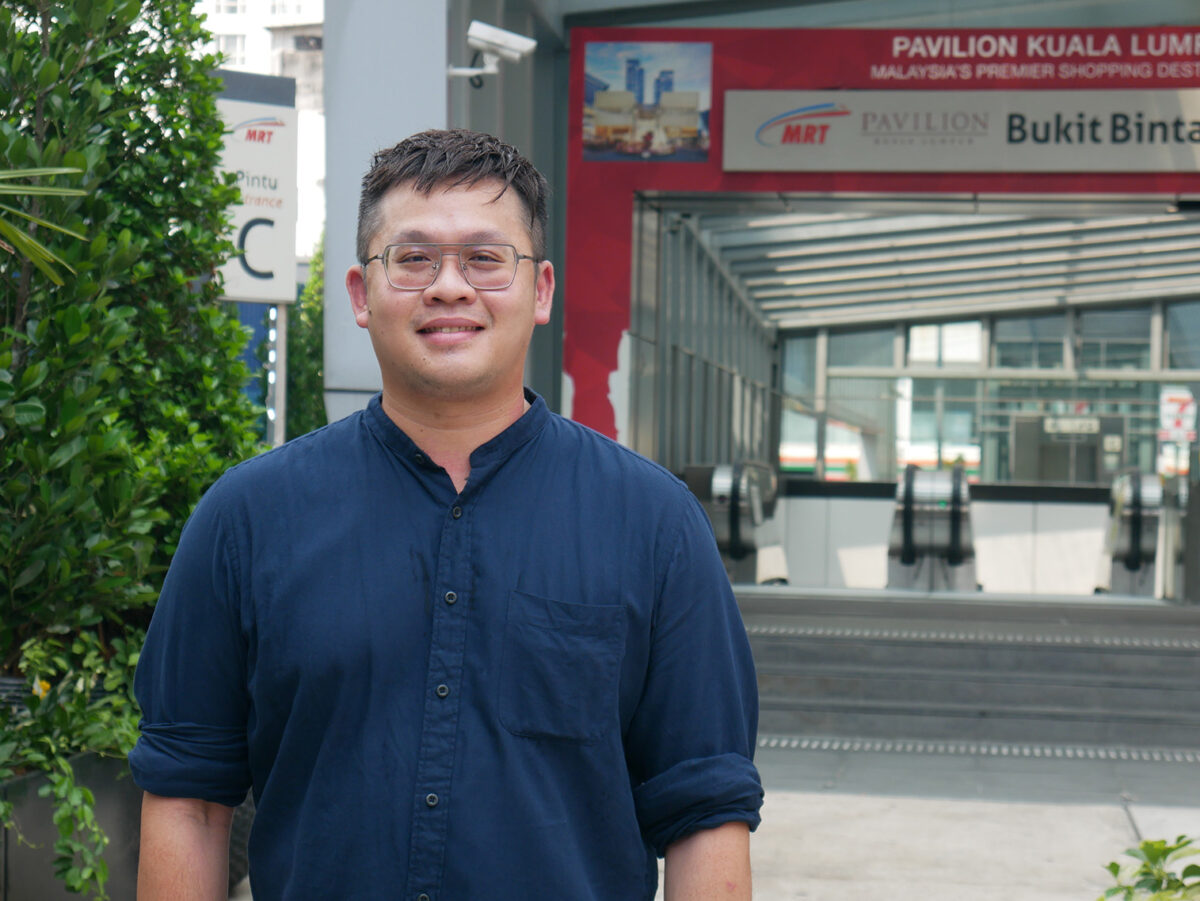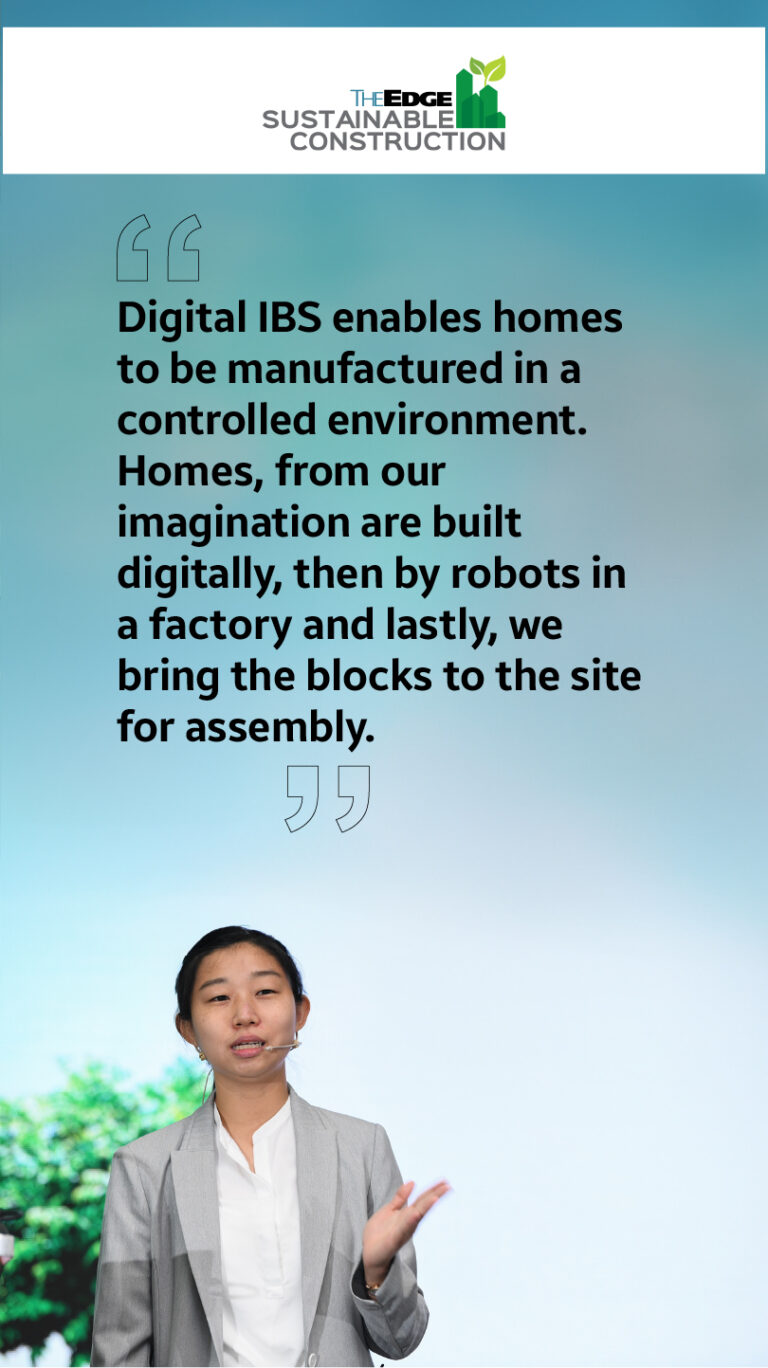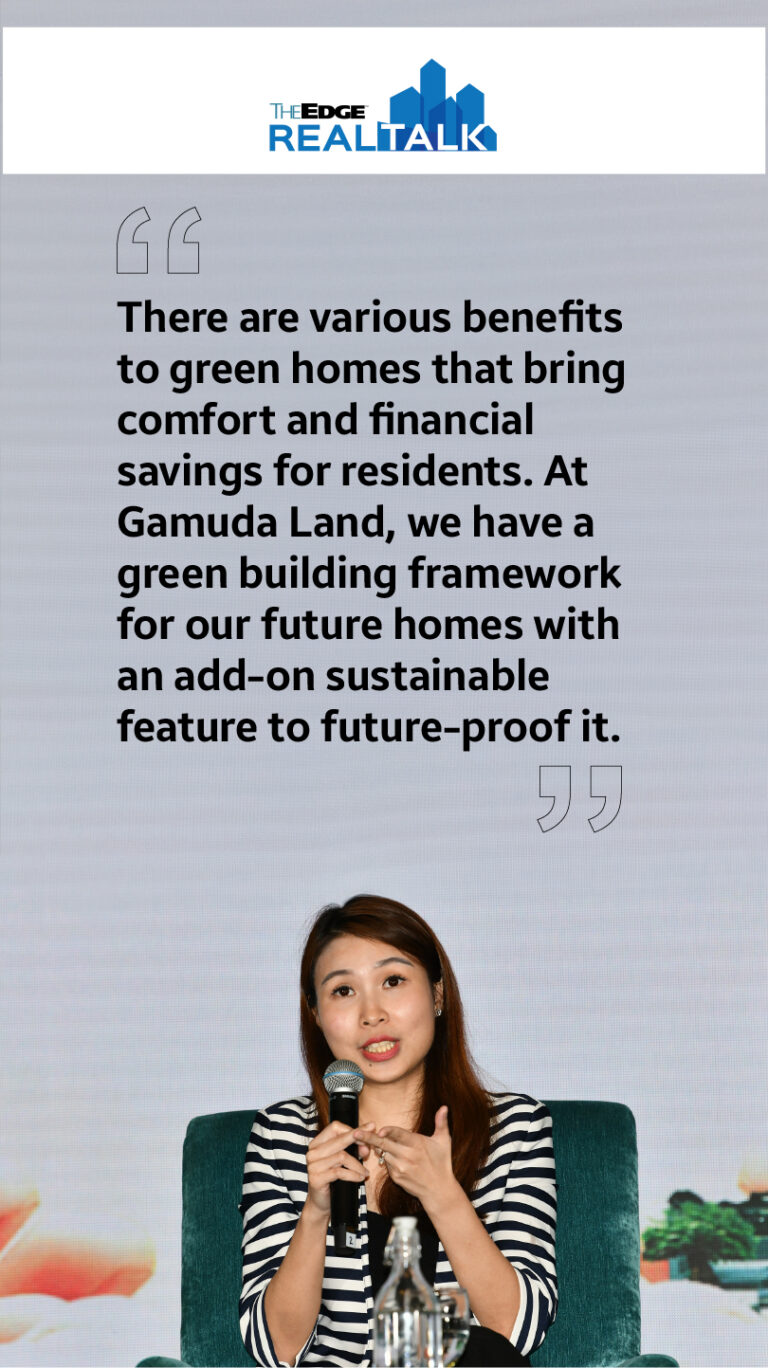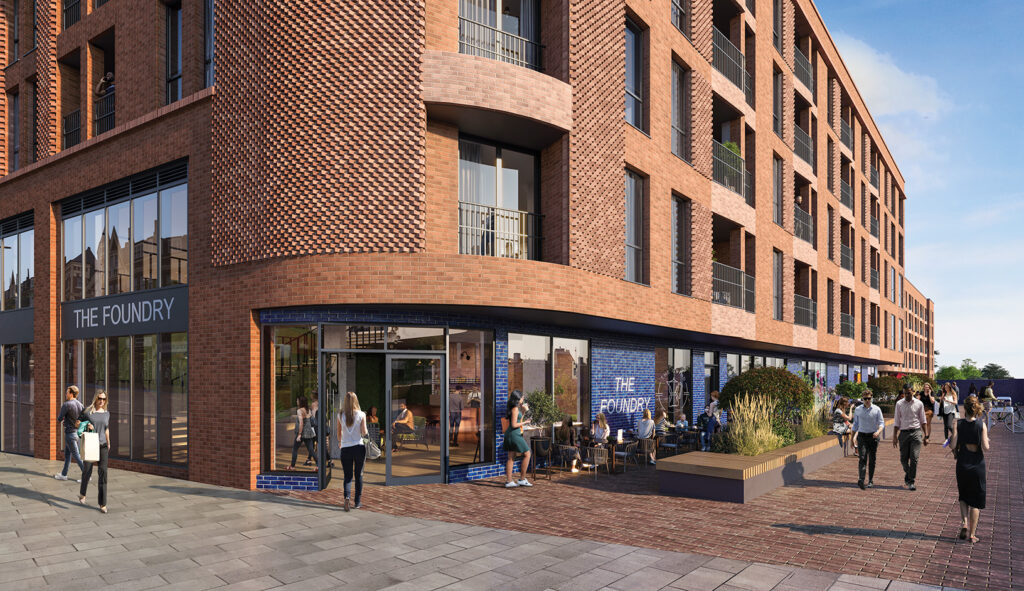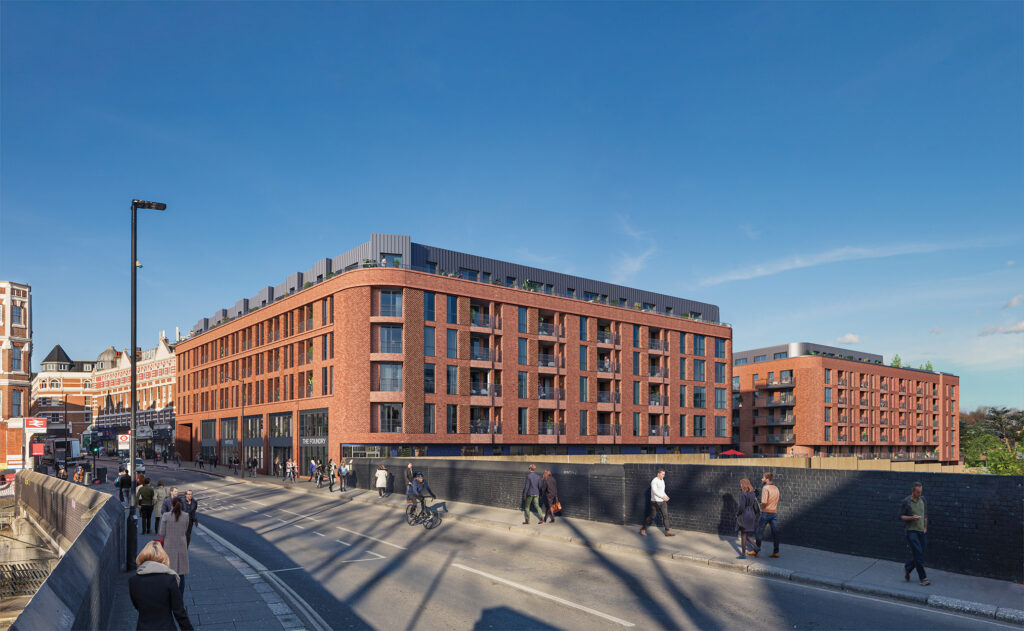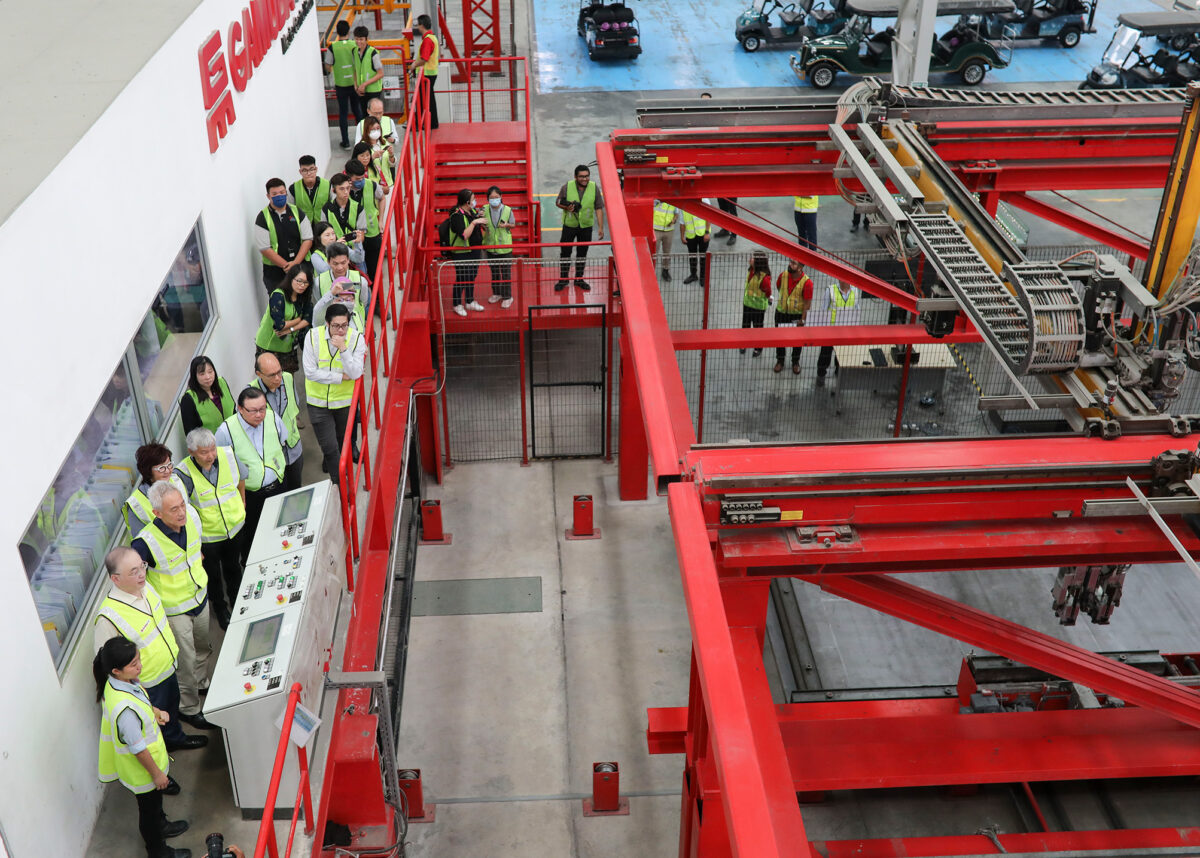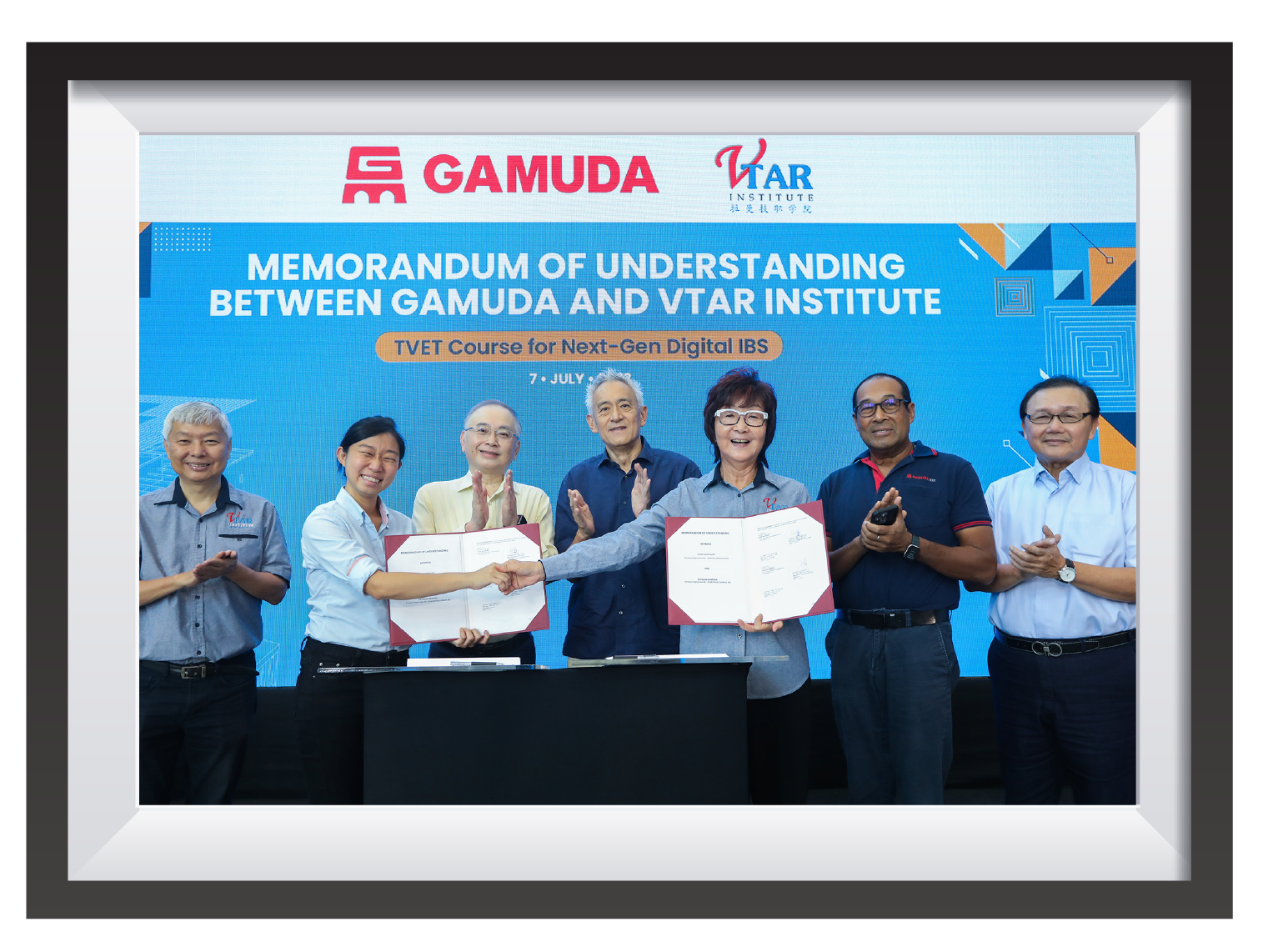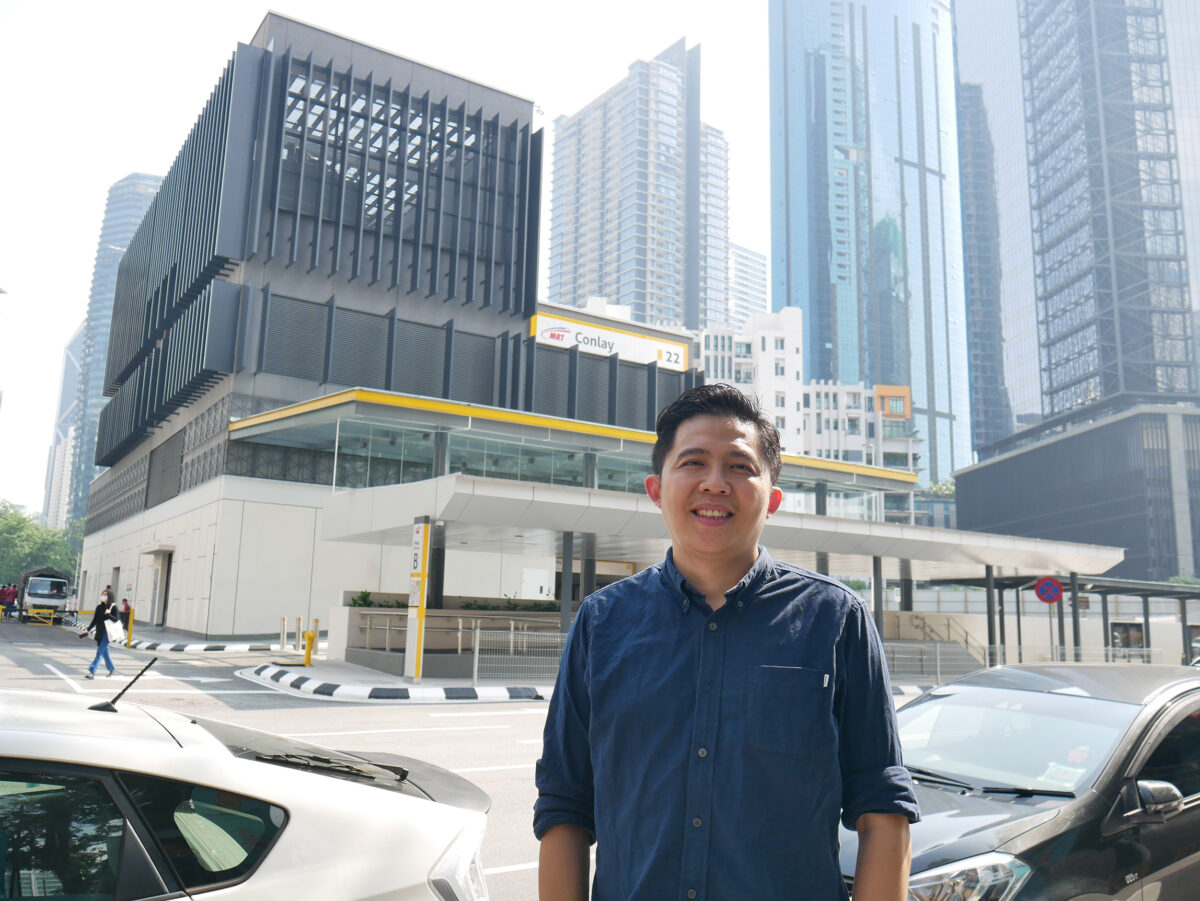Earlier this month we signed an MoU with VTAR Institute (VTAR), a prominent private vocational training institution, to launch a new Technical and Vocational Education and Training (TVET) course for next-gen Digital Industrialised Building System (Digital IBS), the first for Malaysia.
Through this programme, Gamuda will collaborate with VTAR to create the Certificate in Digital Manufacturing in Construction Program. The first intake for this programme will be in September 2023.
This public-private partnership between Gamuda and VTAR is expected to deliver 600 trainees in the next five years and is a significant milestone in our shared commitment to developing a robust, future-proof front-line workforce in the construction industry.
It is also a great example of how private entity and education providers can collaborate to create a more effective TVET system.
After all, the construction industry is one of the largest employers in Malaysia, and we must have a skilled workforce to meet the demands of the industry.
Arguably, the construction industry is undergoing a rapid transformation driven by digitisation, automation, and artificial intelligence. This means that the skillsets required in TVET must adapt to meet these shifting demands. However, the traditional TVET model cannot always keep up with the changing needs of the industry.
For example, the construction industry increasingly uses digital technologies to automate the construction process. This means that TVET graduates need to be equipped with the skills to work with these technologies.
This RM30 million collaboration between Gamuda and VTAR will help address this challenge by providing a customised TVET programme tailored to the construction industry needs.
This also aligns with the Government’s vision to make Malaysia a fully developed industrial nation.
It is a customised 24-month training programme, open to all Malaysian students. The programme will consist of three months of soft skills training in VTAR, followed by 21 months of on-the-job training with the actual work environment and final assessment at our next-gen Digital IBS factory in Banting. The TVET trainees will be equipped with Gamuda’s digital design and robotic manufacturing expertise.
By providing our workforce with the skills they need, we can help to make the industry more productive, efficient, and sustainable.
A more productive construction industry will mean we can build more infrastructure and housing faster and cheaper. A more efficient construction industry will mean we can use fewer resources and produce less waste. A more sustainable construction industry will mean that we can build structures that are more resilient to climate change.

